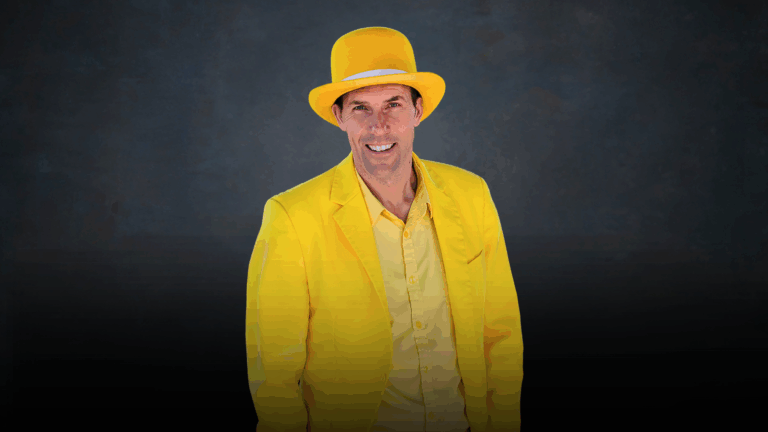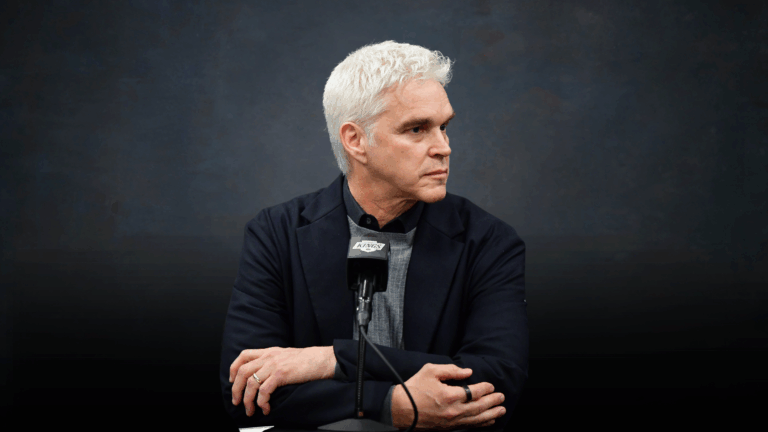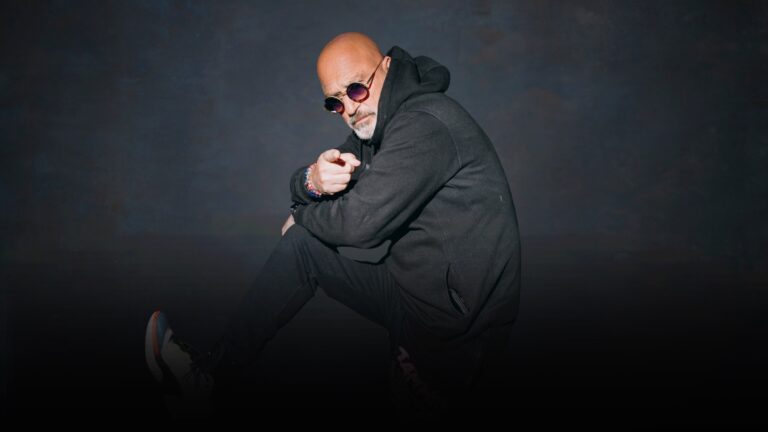This week’s conversation is with Morgan Housel, a partner at The Collaborative Fund and a former columnist at The Motley Fool and The Wall Street Journal.
He is a two-time winner of the Best in Business Award from the Society of American Business Editors and Writers, winner of the New York Times Sidney Award, and a two-time finalist for the Gerald Loeb Award for Distinguished Business and Financial Journalism.
Morgan recently published a book titled, The Psychology of Money, and it’s the impetus for why I wanted to talk to him.
If you’ve listened to this podcast for a while, you know I live by this stance: having a philosophy for your life is imperative…
What I hope you take from this conversation is that the same can be said for how you think about money.
There isn’t simply one “right” way to manage your money, but it should align with the greater values you live by.
At one point in our conversation, Morgan shares that he doesn’t have a mortgage on his house, that he owns it outright.
I was a bit stumped at first because it would appear, especially in our current climate with how low interest rates are, that this is foolish.
Isn’t there a huge opportunity cost to that?
But Morgan is clear on his principles, what makes him feel secure, and what’s “enough” for him… not having to think about a mortgage is something that’s important to him.
So this conversation isn’t focused so much on what to do with your money, but the importance of having clarity on the reasons why you choose to do, what you do, with it.
“With money, there’s not one right answer for everyone. It’s very lifestyle-based, goals-based, generationally-based. But going through a period of time where you do not control your time makes you realize how valuable it is.”
In This Episode:
Why everyone makes different decisions when it comes to money
No matter how hard you try to understand someone’s experiences, until you’ve been in the moment, in the trenches and have the emotional scar tissue that they do, you will never really understand it.
How he defines wealth
When most people think about money and wealth, they think about what it can buy you, your ability to buy stuff. You go out and buy clothes and a house and car, to buy material possessions. And that’s a great part of it, of course. To me, there’s this other part of money that is just as valuable, if not more valuable, which is the ability to provide yourself independence and autonomy and do what you want, when you want, with whom you want, for as long as you want, on your own terms. And I think that degree of independence and autonomy is something that money can provide you that is incredibly valuable. And for a lot of people, it will provide more lasting, enduring happiness then buying stuff will.
What’s the why that underneath this searching for more as opposed to the searching for freedom?
I think it comes down to the social signaling aspect of wealth, and particularly the relative social signaling in terms of, if your friends, your neighbors, your coworkers, those around you, if they are signaling X, you want to be able to signal X plus one to prove yourself in that hierarchy. So your friends, your coworkers level up in their car, their house, and you need to always be one level above them, then you’re always going to be on that race.
How has lived changed for the average American since the 1950’s?
The average median income in the United States adjusted for inflation is double today what it was in the 1950s. Adjusted for inflation, the average American is earning twice as much as they did in the 1950s. But I think by and large, when you look at the 1950s and golden age of nostalgic prosperity in middle-class America, we view the ’50s and ’60s as that age when the average family had a great income and a great middle-class life, even though we’re earning twice as much today. I think the reason that is because even though our incomes have doubled since the 1950s, our expectations have more than doubled. But now, because of social media, your circle of influence that you see is the entire world. And if you go on Instagram, you are being constantly flooded with pictures of people going on vacations in the Maldives with their private jets and have their Bentleys pick them up. That’s your new view of the world that can increase your expectations to a much greater degree than it used to be before we had social media. So I think this has always been the case that we are chasing those around us in order to gain relative status. But I think it’s gone supernova in the last decade as the number of people around you and the view of your world around you has just exploded to virtually everyone.
The goalposts keep moving
I think one of the most important financial skills is getting your own personal goalposts to stop moving. But it’s a hard thing to do, to have a goal in the future and have an aspirational goal, but if you meet that goal and you would instantly just move the goalpost down the field and have another goal, you’re never going to have a lasting level of financial satisfaction that I think we all aspire to. I think for most people, it’s a net worth figure. And you have an aspiration of, “Once I get $100,000, I’ll be happy and everything will feel safe.” And then you get there and you say, “Okay, now, how about if I have a million dollars, that will be great.” And that game never ends.
How does he not fall into the social comparison trap?
The game that I always play is if my wife and children and I lived on a deserted island, it was just us, there was no one else who was there, there was no one else was judging us or measuring us, what kind of house would we want? What kind of car would we want? If I was living on that island, would I want a Ferrari? No, a Ferrari is so impractical. It’s awesome, it’s beautiful, it’s a status symbol, but I would probably want a pickup truck or a Jeep or something. And what kind of house would I want? Would I want a 20,000 square foot house? No, it’s hard to take care of. I would want a comfortable house that served our needs. And so I think that game, if you try to play that game of, if no one’s watching me, if no one was looking, with the exception of my wife and my children, just my immediate family, no one else ever looked at me, what would I want in life? And that’s what I should go towards. Again, it’s not something that’s black and white, because even if I try to play that game, you’re always going to get sucked a little bit into social signaling. And social signaling is important to show other people what you value and who you are and what not, for them to take you seriously, so there is that important aspect of it. But I’m always trying to ask myself that question of like, “What actually makes a difference in terms of my happiness and utility? And I want to move more towards that, away from the signal.
When did his view of money shift?
When I was in college in Los Angeles, I was working at a fancy high-end hotel, and I realized when people would driving in Ferraris and Lamborghinis and Bentleys, first I was in awe of those cars when they came in, and like every 21-year-old, I would say, “Wow, look at that.” But I realized that I never cared about the driver. Whenever those cars pulled in, I never looked at the guy, it’s usually a guy, driving in the seat and saying, “Wow, that guy’s really cool. I want to be that guy.” What I did is I looked at that car and I imagined myself sitting in the car, and I imagined how people would gawk at me if I was driving the car. And it was this light bulb moment, this irony of, “I don’t care about the driver, but I want to be the driver so that other people will care about me.” The irony there was… And once I got that, it was like, “Okay, okay, I get what the game is now. It’s this crazy thing where everyone driving the car thinks that people are looking at them, and everyone who’s looking actually just wants to be the guy in the car.” Once you realize the game, it’s easy to take a step back and say, “I see the game, and it’s silly, and I don’t want to play it.”
How does he advise people on managing their money?
It’s very different for everyone. How I think about life and goals might be different from how you think about it, different from everyone. Money is not math, where two plus two equals four. There’s not one right answer for everyone. This is all very lifestyle-based philosophy, goals based, generationally based. So it’s different for everyone. But I do think that going through a period of time where you do not control your time makes you realize how valuable it is.
Why he prioritizes freedom
Time and freedom is like oxygen where you don’t realize it, how valuable it is until it’s gone kind of thing. I think that’s really true for everyone, that you’re never going to value independence until you go through a period, even a short period of your life, which that was the case for me, where you don’t control your time and you realize I never want to go back there. And the ability for me to wake up every morning and say, “I can do whatever I want today.” And most days I want to work hard. That’s what I want to do. This is not saying freedom means you can just retire early, most days I want to work, but it’s on my terms, it’s doing work that I want to do. Once you taste that and you compare it to the time when someone told you when to wake up and told you when to go to work and told you what to work on that day, once you compare those two things, to me, it’s just so clear which way I want to go.
What gave him more clarity on his values?
Having a deep conversation with myself and deep thoughts about who do I really admire in the world? Who do I really genuinely look up to? And the answer to that question for me was generally not people who had a lot of fancy stuff, it was people who because they had control over their time were able to live great lives and spend time with their family, spend time with our kids, spend time with their spouse in really meaningful ways because they were not shackled to their desk and become slaves to their work. Those are the people who I really admire the most and that I aspire to become.
The allure of pessimism
There’s this great quote from a historian named Deirdre McCloskey that I like where she says, “For reasons I have never understood, people love to hear that the world is going to hell.” And I think what she means by that is pessimistic news, pessimistic headlines get so much more attention than optimism. And there’s part of it that is just biology, like through evolution we’re more trained to react with greater attention to threats than opportunities just in our ability to stay alive, our need to stay alive. So part of it makes sense, but I also think there’s a sense, particularly in finance and money and economics where pessimism sounds like someone trying to help you. It sounds like, “Hey, there’s a threat in front of you and I’m trying to help you avoid it.” Whereas optimism sounds like a sales pitch. Optimism is like, “Hey, I got this great stock that’s going to go up. Do you want to hear about?” It sounds like a sales pitch and a lot of BS detectors goes off and they say like, “No, that’s not something I’m interested in.” But if there’s a threat, if something’s going to threaten me and my family, I’m going to clear my schedule and hear about that immediately. So that disparity between how we think about these things is really important.
Why it pays off to be an optimist
What’s interesting is that if economic history and investing history, you should be an optimist, our ability as a species to solve problems and become more productive, for that productivity to lead to profits that are going to accrue to you as an investor for the economy to grow over time, is extraordinary and we’ve grown so much. The economy has grown 200 fold since 1900, an amazing amount of growth. But at every point in time during that period, the pessimists got the most attention. There’s always something to worry about. And they were worried about realistic and reasonable things. There’s always a recession or a bear market, or a war, or a pandemic, or an assassination. There’s always something in the news that is genuinely bad and bad news there, but the nuance it’s hard to understand is that a lot of chaos and bad news and pessimism in the short run does not preclude long-term growth. That even if the short run is a continuous chain of bad news, things can still improve greatly over time
The key to investing is endurance
One of the most important investing philosophies and things that I think about is just endurance. It’s not like, what are the best returns can I earn this year? It’s how can I make sure that I can be an investor and stay in the game for the next 50 years? That’s really what matters, because that’s where the compounding and the optimism comes from. So much of it, if you were to think that, if you look at someone and you say, “Oh, you’re very conservative financially, you don’t have a lot of debt, your investments aren’t very risky. You look like you’re being very conservative,” which a lot of people would say to me when they look at my finances. And I just don’t think that it’s actually being conservative, what I want to be is I want to be durable and have endurance, because endurance is what lets you enjoy and benefit from compounding over the long run. What happens in any given year or any given five years or even in any decade, it’s usually not that exciting and investing, but what can happen over 20 or 30 or 50 years is absolutely extraordinary. That’s just how compounding works. So all I want to think about as an investor is how could I stick around, how can I stay in the game for 50 years and let my money compound? Because that’s where the biggest optimism and the potential for growth really sits. And the only way that I’m going to get there is if I recognize that the short-term pessimism and the bad news is something that I have to put up with and endure and able to get the long-term reward at the end.
Why having no mortgage matters so much to him
It’s definitely not something that I would recommend to others because everyone’s different. But this works for my wife and I, because we value durability and independence so much. But it’s not necessarily something that I would recommend for others. I write in the book that not having a mortgage is the worst financial decision we’ve ever made because of what you just mentioned. You can get a 30-year fixed rate mortgage for like 2.5 % these days. And we can invest that money elsewhere and earn a better return. So it’s been a very bad financial decision, but I think it’s the best money decision that we’ve ever made, because it has more than anything else we’ve done, given us a level of insurance and autonomy and security and durability than any other thing that we’ve done with our money. So from that sense, even if we can’t explain it on a spreadsheet, and I’ve had a lot of people say, like, Walk me through the numbers, try to rationalize this to me.” And I always say like, No, no, no, I can’t rationalize it. It doesn’t make sense on a spreadsheet. But when my wife and I high five, like when we paid off our mortgage three years ago, the high five, like, “Oh my God, we did it. What we got from that exceeded anything else we’ve ever done with money, even if it’s the dumbest thing we’ve done on paper.



